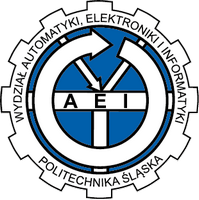Start - MGR EiT SPEC – Telecommunication (TK)
Specialization: Telecommunication (TK)
Electronics and Telecommunication, Master’s degree (stationary)
Specialization characteristics
The meaning of telecommunication cannot be overestimated in the 21st century. It is responsible for ubiquitous information exchange on various levels of social, economic and personal life. It is not only interpersonal communication but also its new forms, such as man-machine or machine-machine communication. Undoubtedly, efficient communication, i.e. fast, error-free and secure, is the basis of how the modern world works.
Continual development of electronic technologies, processing algorithms and network techniques result in dynamic changes in telecommunication. Teaching content of Telecommunication specialization is consistent with the current trends and challenges in this field. It covers topics related to the construction and operation of wired and wireless transmission networks, including the mobile technologies as LTE (Long Term Evolution) and the currently implemented 5G. Efficient information processing is at a core of their operations. Therefore, the principles of information coding on various layers of the digital communication system will be presented, including audio-video processing and VoIP communication (Voice over IP). Issues of information security in modern ICT networks will be discussed too. Referring to the mentioned teaching domain, there will be an opportunity to get some practical skills in:
- configuration and administration of VoIP infrastructure;
- development and evaluation of processing algorithms for physical layer of telecommunication systems;
- implementation of processing algorithms in digital signal processors;
- principles of mobile application development;
- analysis of security and reliability of information transmission;
Student profile
The specialization is addressed to people interested in acquiring knowledge and skills related to the development, operation and use of components that comprise advanced telecommunication systems.
Admission Requirements
Studying in Telecommunication requires basic knowledge of electronic and information systems and devices, basics of programming and mathematics.
Addressed problems
Students acquire knowledge in the following areas:
- development and operation of wired and wireless telecommunications networks;
- network security;
- information processing methods;
- programming of telecommunication devices;
Specialization courses
- Mobile broadband networks
- Digital signal processors
- Advanced techniques of digital transmission
- ICT network security
- Programming mobile devices
- VoIP techniques
- SDH and ATM networks
- Optical technology
- Audio and video signal processing
Graduate student profile
Graduates of this specialization will be able to find employment in the following areas:
- design and construction of telecommunication systems components;
- operation and management of telecommunication networks;
- transmission techniques implementation;
- design and test algorithms for analog and digital signal processing;
- implementation and evaluation of security measures;









